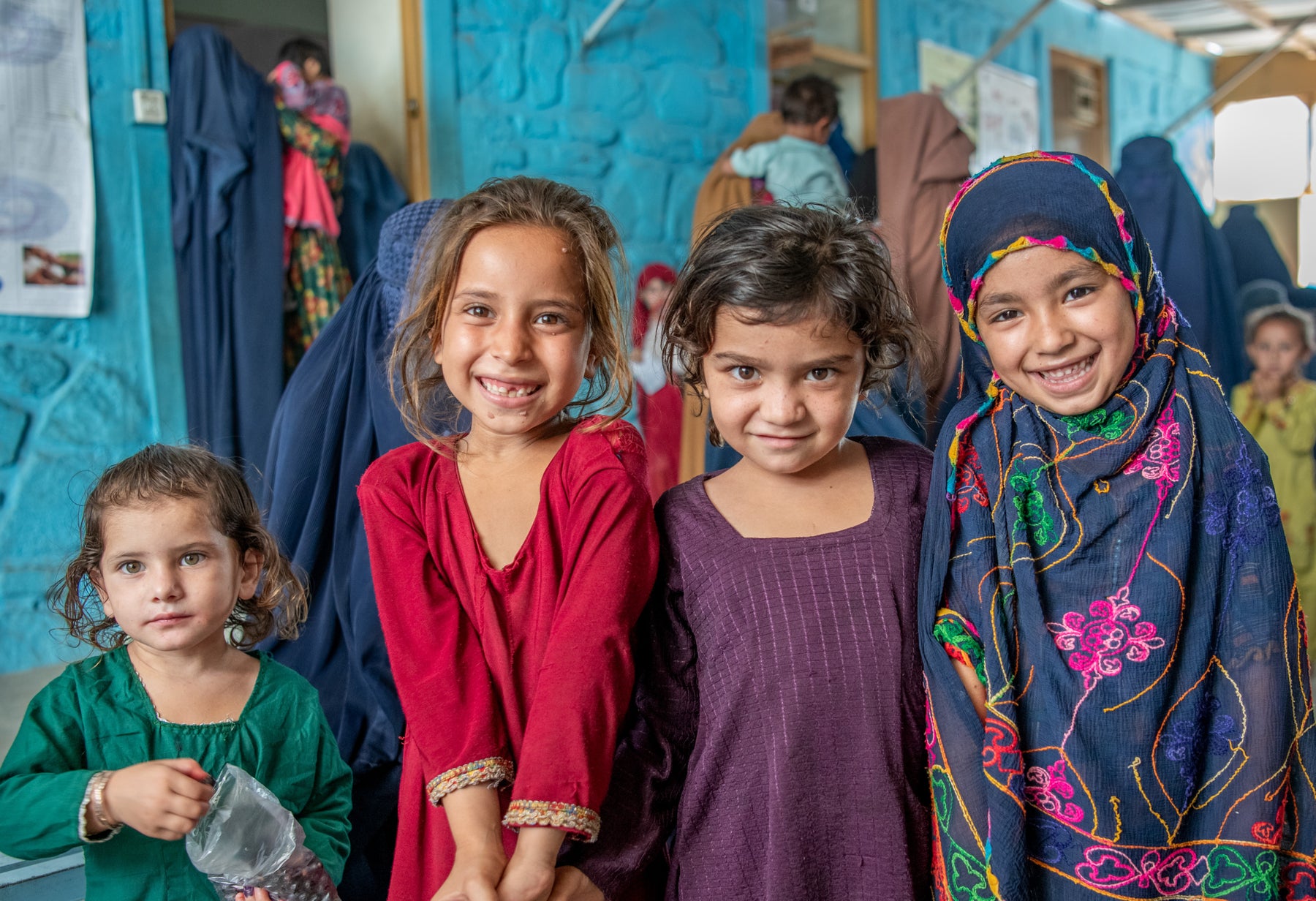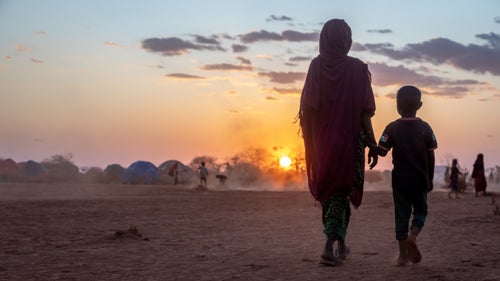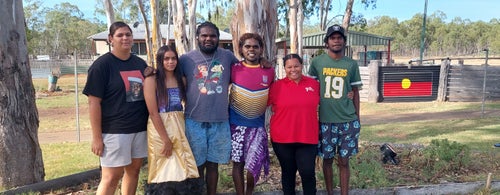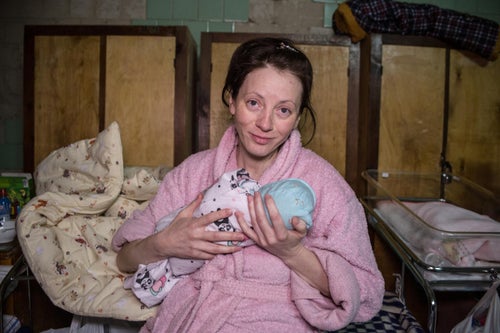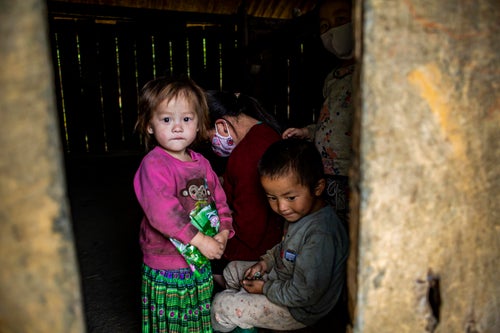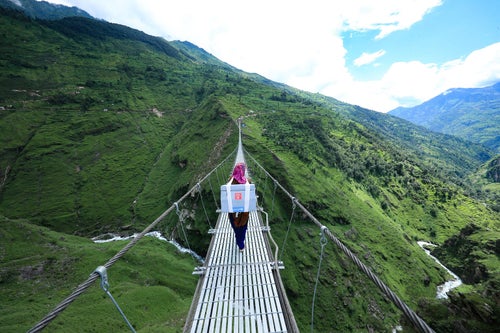Two years since the Taliban seized power, life in Afghanistan – already marked by decades of insecurity and natural disasters, and now distanced from the global community – has further deteriorated. The country is in crisis, and it’s a child rights crisis.
Humanitarian assistance is needed for two thirds of Afghanistan’s population as they face the onslaught of drought, hunger and disease. Millions of children - mostly girls - have been shut out of education and prevented from accessing the skills they need for the future.
UNICEF has been on the ground in Afghanistan for over 65 years and is committed to stay and deliver life-saving programs for children and women, with the help of partners, to reach even the most remote and vulnerable.
During a recent mission into rural Afghanistan, we met some amazing women who have given years of their lives to the women and children across the country. As a result, many thousands of lives have been saved.
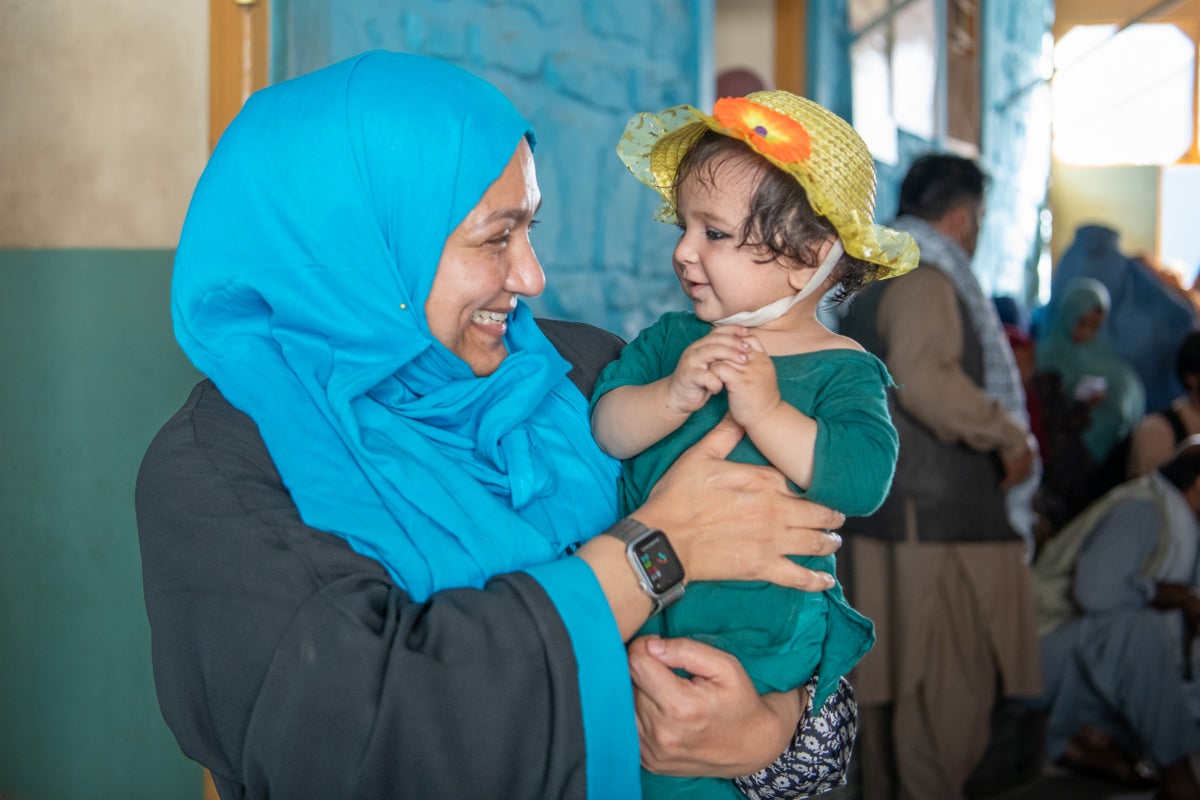
How has UNICEF managed to support so many children, despite all the challenges? “Health clinics, family teams of community workers, community-based schools, vaccinators, and trained female health workers,” says Dr. Shafique.
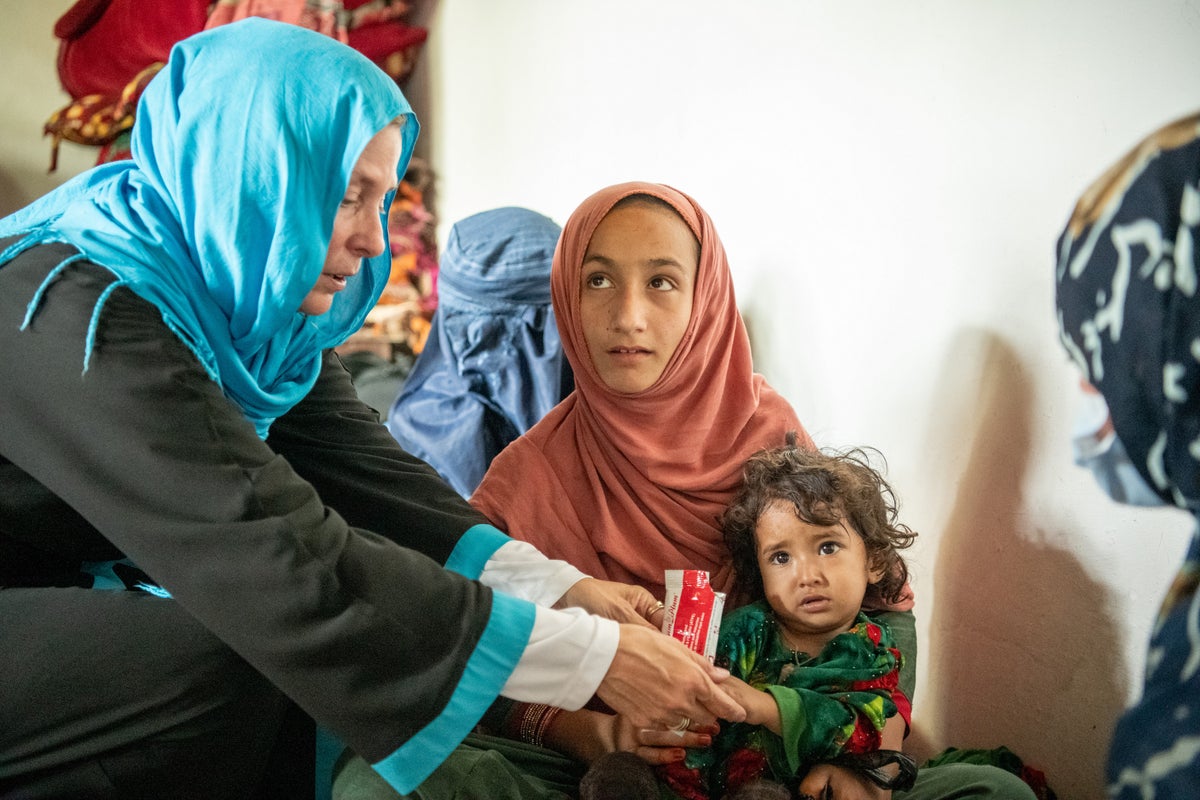
Zarmina and Melanie are at a UNICEF-supported mobile health and nutrition team in Kunar Province. Monthly visits by these teams provide basic services including pre-natal checkups, vaccinations, psychosocial counselling, and ready-to-use therapeutic food (RUTF) to treat severe acute malnutrition.
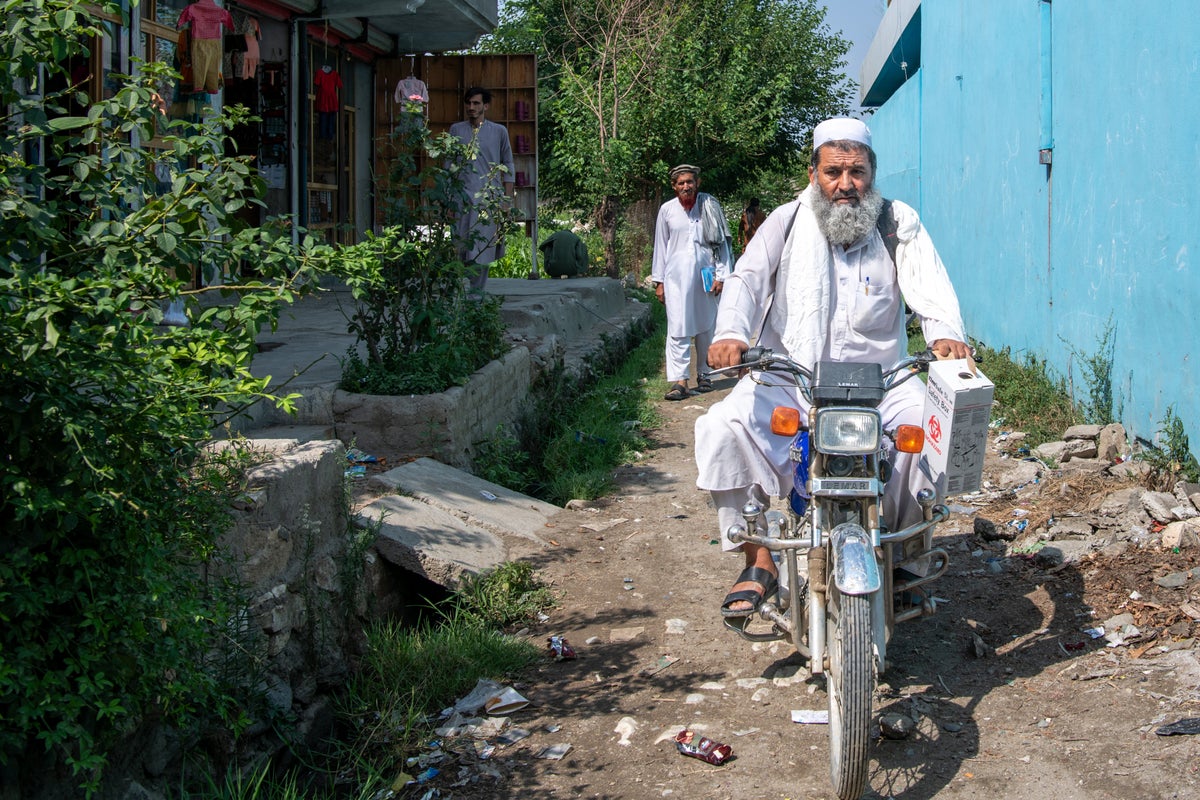
A hero on two wheels: every morning, Mangal, 53, picks up his supply of vaccines for the day at a UNICEF-supported district hospital. He carefully packs them in a cooler and straps it to his motorbike. Then he sets off to reach remote villages. Mangal braves the rough, tiny road, the scorching heat, and the security risks.
"I ride for nine kilometers every day to bring these shots to the people who need them. Now they understand how important it is to protect their children from diseases. They don’t need any persuasion to come here. They greet me with gratitude and hope."
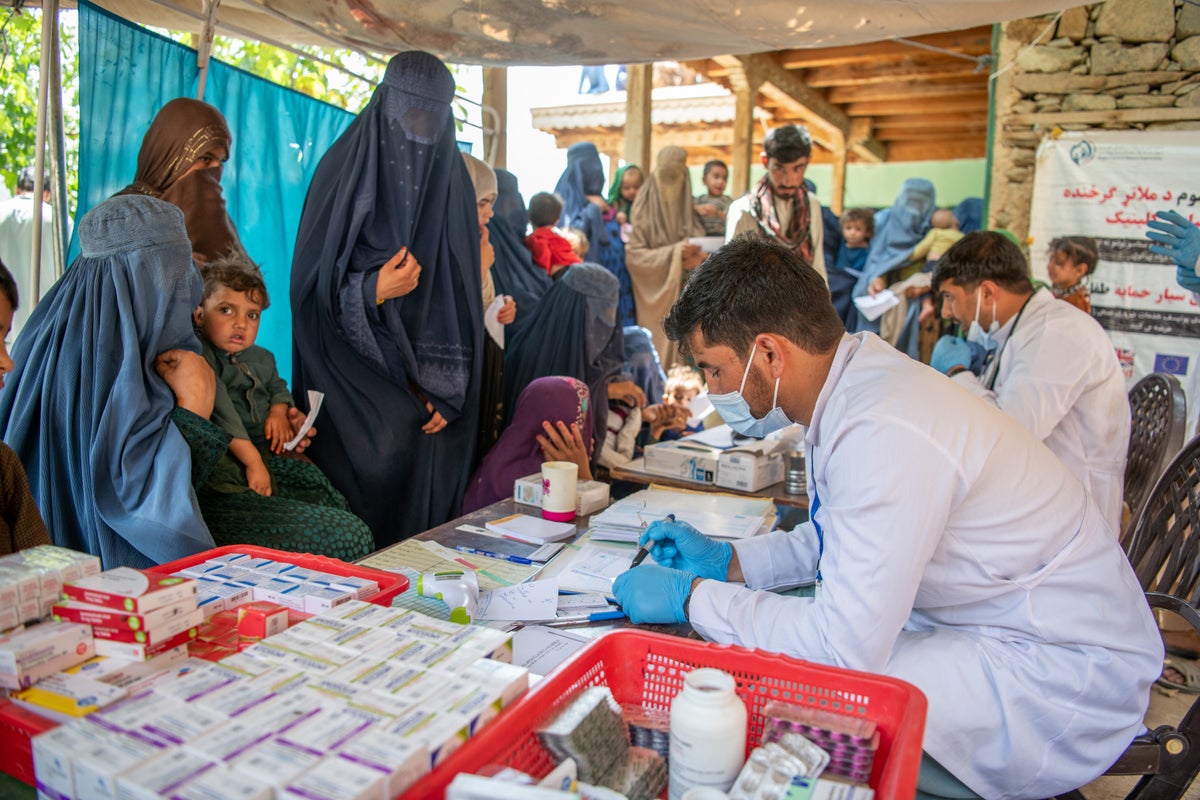
This is where some of Mangal’s supplies land. These mobile teams bring health care and nutrition services straight to the communities who need them most – and who have no other way to access health care. Like so much of UNICEF’s health and nutrition work – across all of Afghanistan – these programs are game-changers.
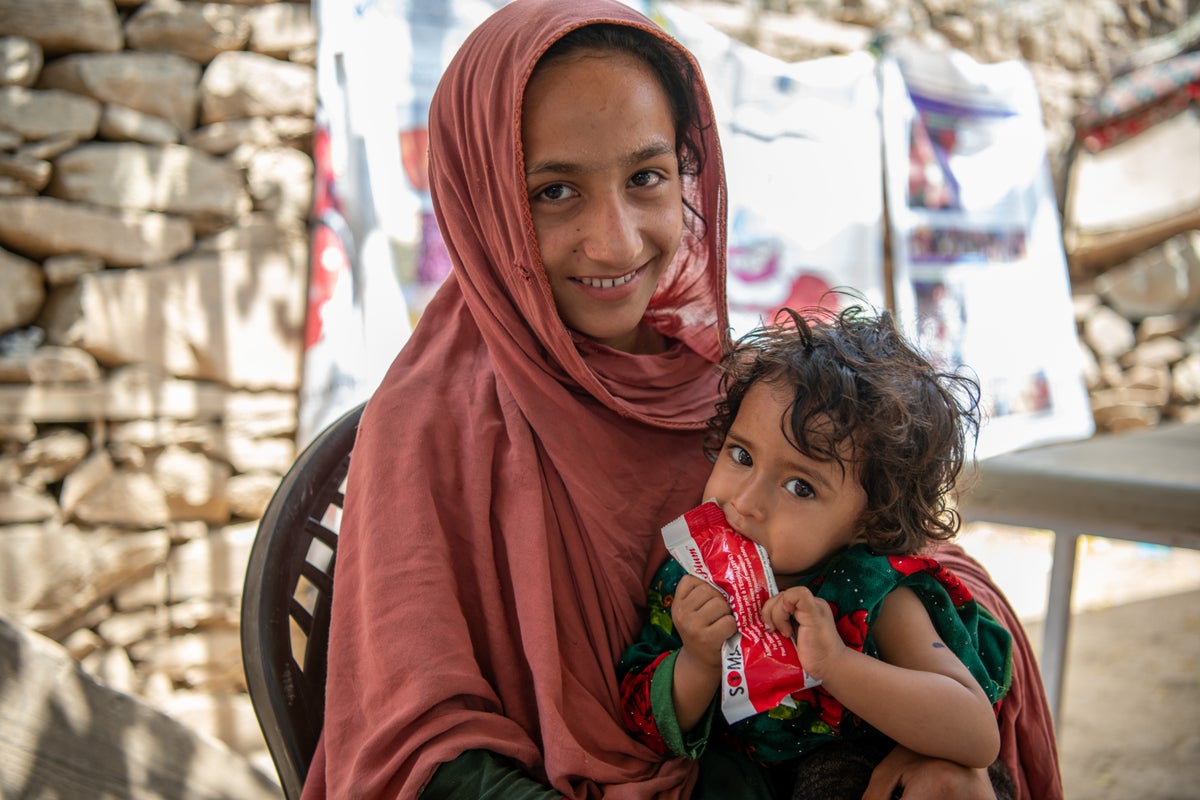
This is the face of improving health. One of the millions. RUTF is an energy dense, micronutrient paste made using peanuts, sugar, milk powder, oil, vitamins and minerals that has helped treat millions of children threatened by severe wasting – the most dangerous form of malnutrition. RUTF has helped treat millions of children threatened by severe wasting in Afghanistan.
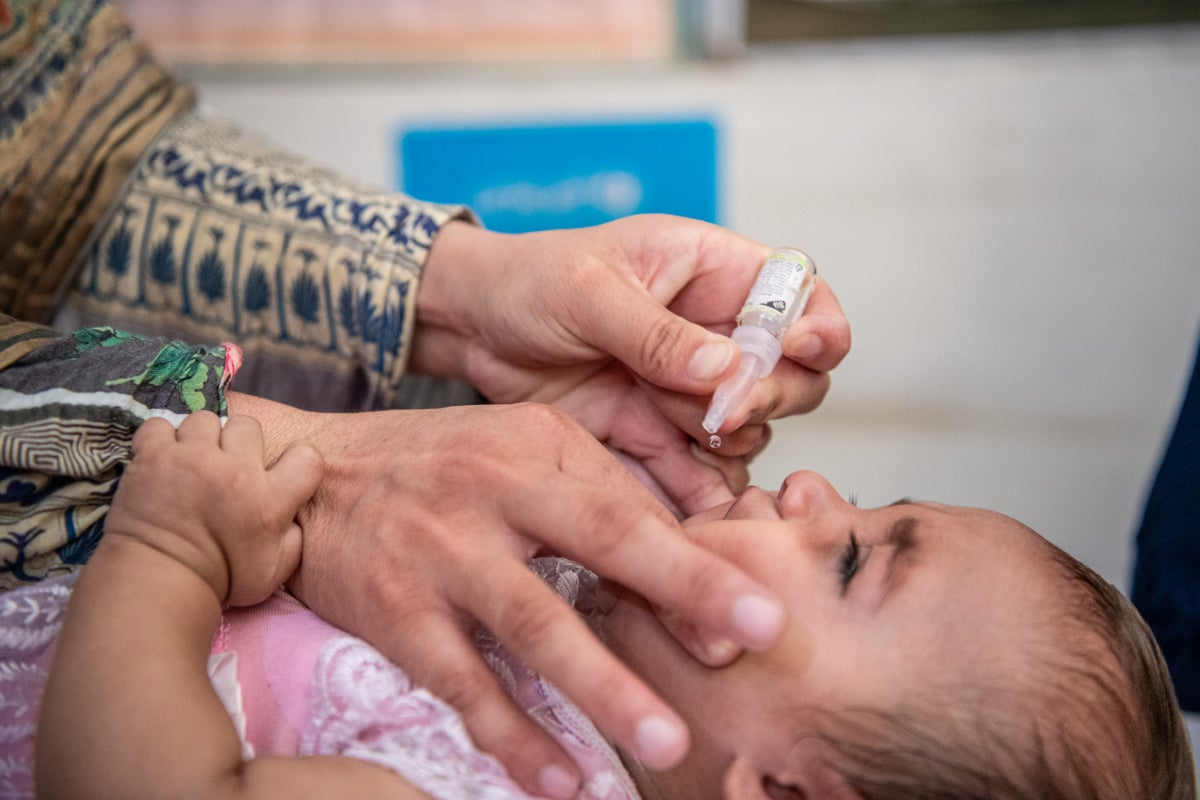
In Afghanistan, despite continuous concerted efforts by the polio program to achieve polio free status, the battle to finish the last mile has become a pivoting challenge, resulting in an increase in the number of polio cases during the last three years.
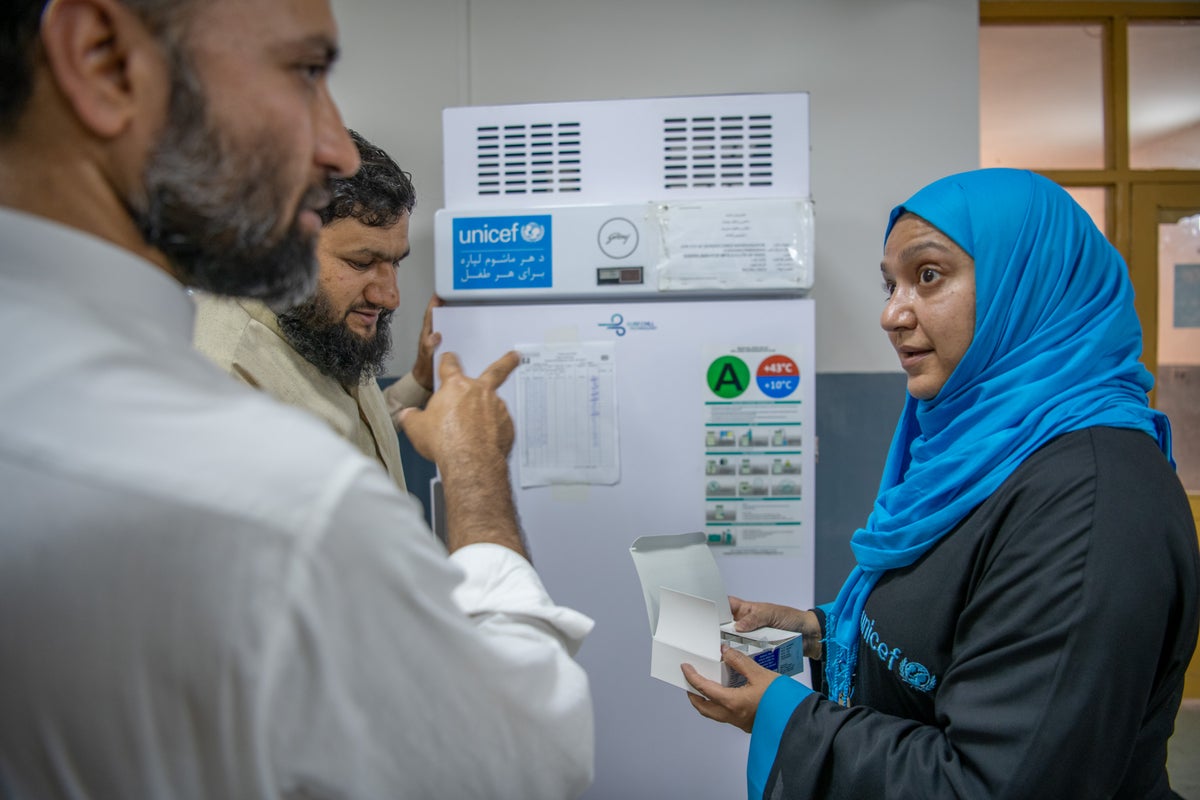
Health and nutrition interventions are made possible by the tireless work of UNICEF staff, such as Dr Fouzia Shafique, Principal Health Advisor, and Dr Nafi Kakar. Together, they inspect vaccines and the cold chain that stores them at a the hospital in Kunar. UNICEF has ensured the continuation of quality primary and secondary health care in Afghanistan, managing thousands of health facilities, paying operating costs, paying the salaries of tens of thousands of health workers, and procuring and distributing medical supplies.
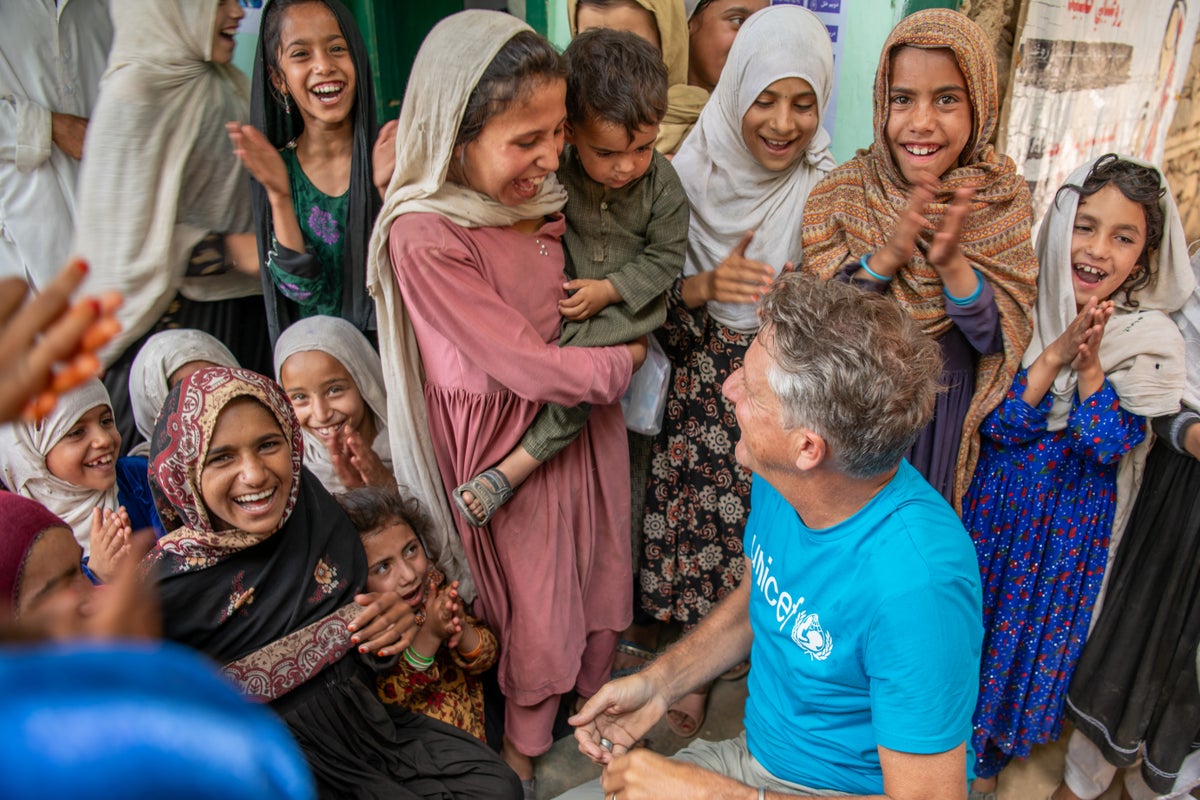
"Today more than 15 million children in Afghanistan need UNICEF’s support. I can’t fully grasp that number, though I can picture those I meet – the baby fighting for her life in an incubator; the children working for their families in fields of unexploded mines; the children grappling with the anxieties and pressure of poverty; and the girls shunned from their greatest hope – education. Each child is like my own. Unique. Each child is special. Each child is one of the 15 million."
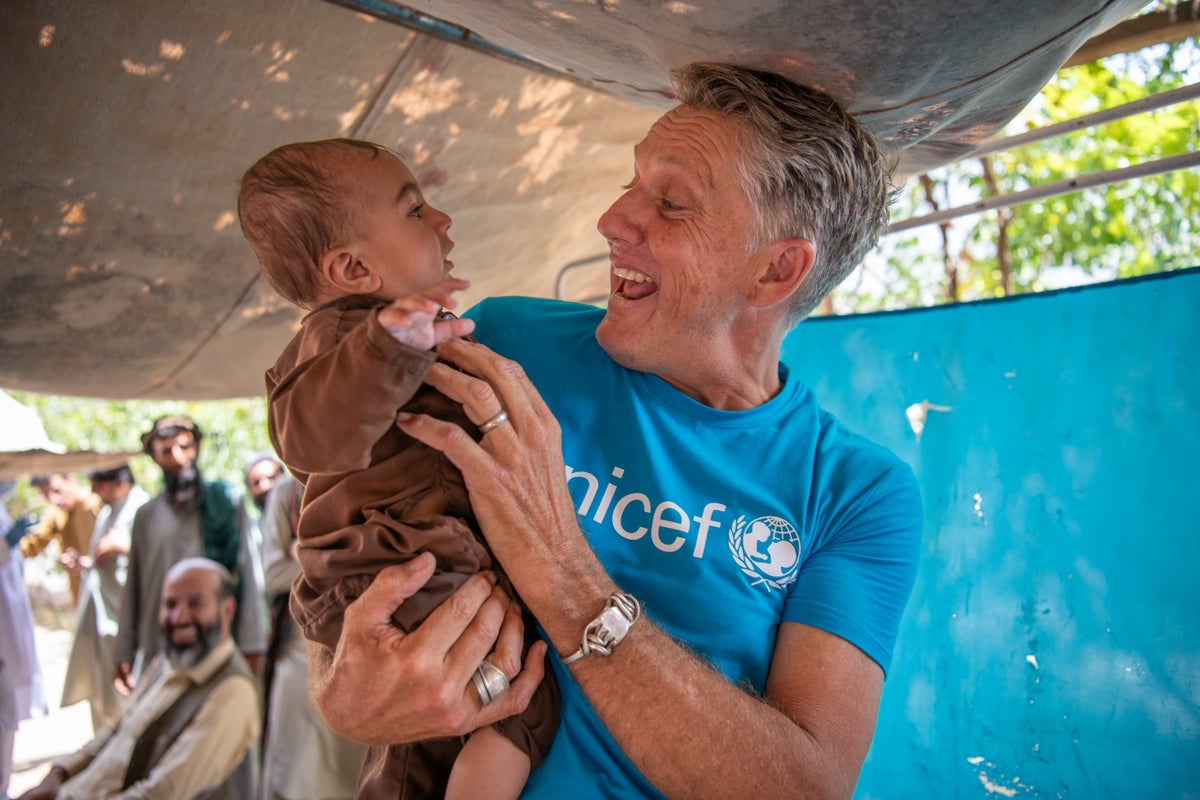
Despite the ongoing crisis in Afghanistan, despite the politics and poverty, humanitarian organisations, like UNICEF, refuse to give up on children. This year, UNICEF has helped 19 million children and their families receive health and nutrition services. That’s almost half Afghanistan’s entire population. In half a year. But there's so much more to be done.
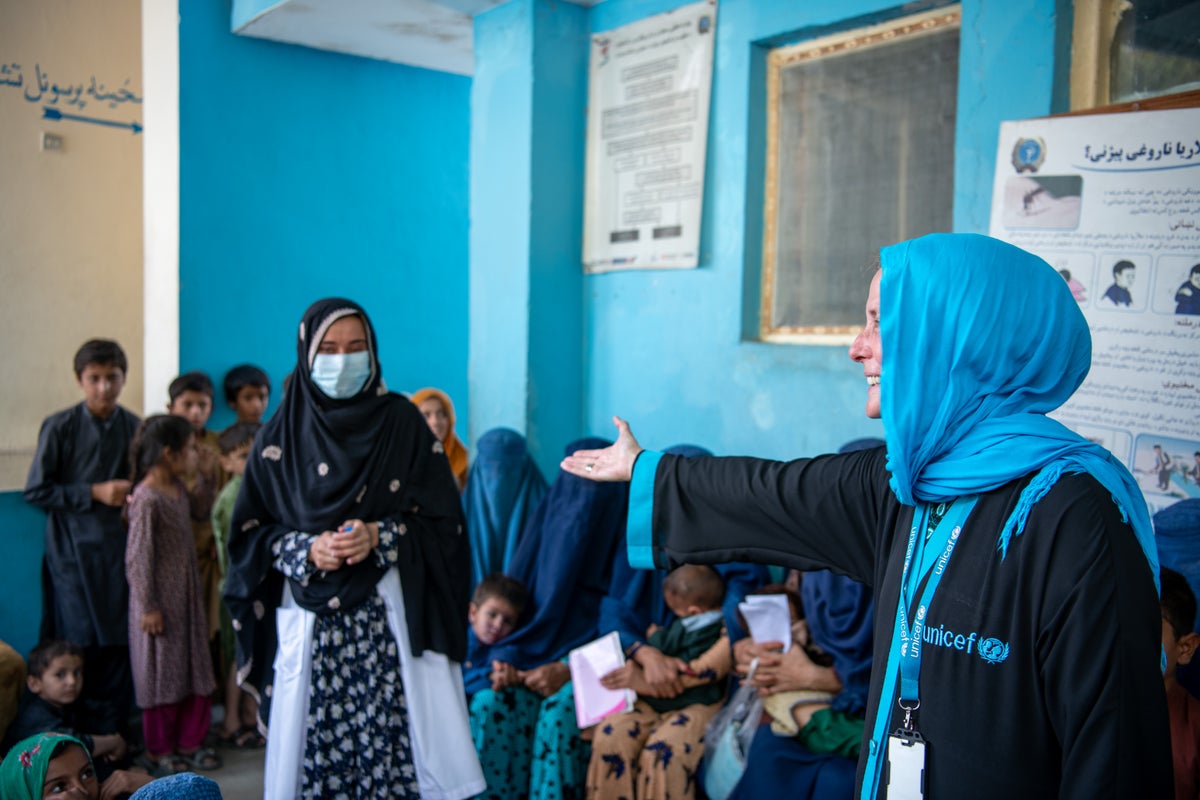
In Afghanistan, nearly half of all children under five are malnourished - more than in any other country in the world right now.
"My heart sinks when I look at the monthly data. But UNICEF more than doubled the places where a child could be treated. Last year we put more nutrition nurses and nutrition counsellors into overflowing hospitals. We put them directly into communities where people live. We put them into mobile clinics that reach very small and isolated populations. We put them into day care centres spaces in poor urban areas. Nearly 95% of these places existed. We just had to add the staff."
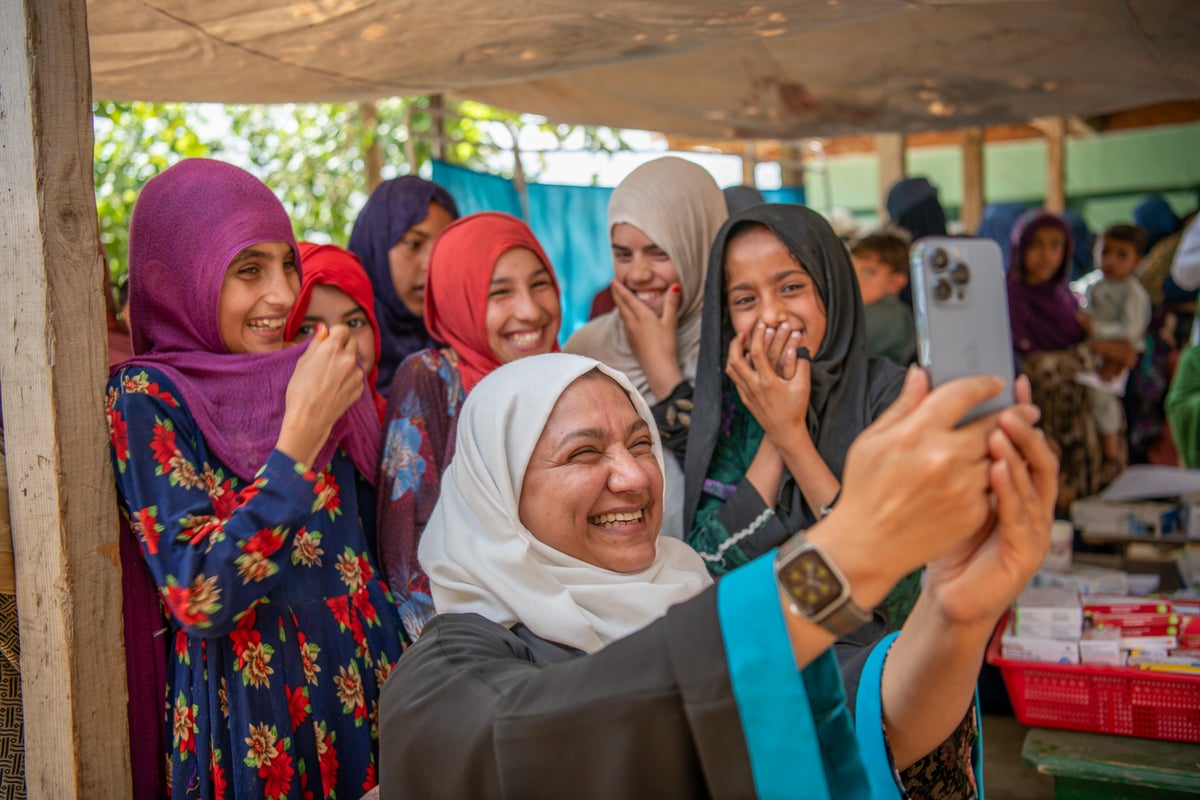
The smiles say it all: for UNICEF’s Dr Fouzia Shafique and young Afghan girls, it’s been a good day. But there is so much to do. Supporting the health and wellbeing of people in Afghanistan is not only about access to health services, but also includes other social services such as the protection of human rights, notably rights and freedoms for women and girls.
UNICEF will remain on the ground in Afghanistan supporting children and their families. But we can't do this without you.
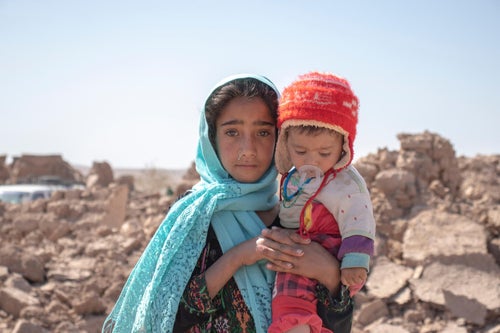
Children in Afghanistan
UNICEF will remain on the ground in Afghanistan supporting vulnerable children and their families. We can't do this without you.
Related articles
Stay up-to-date on UNICEF's work in Australia and around the world



